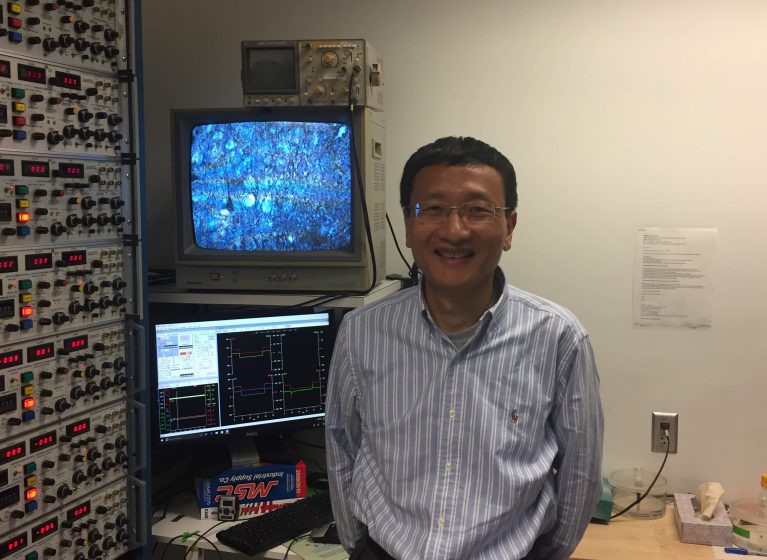J. Julius Zhu, PhD, has come up with a new technique that will let one cancer lab do the work of dozens. Research that would have taken 10 years can now be done in three months. Best of all, the technique isn’t just for cancer research — it’s useful for research into every disease driven by gene mutations, from cystic fibrosis to Alzheimer’s. This will ultimately translate into better, more effective treatments that are tailored to a patient’s exact genetic mutation.
“Every patient shouldn’t receive the same treatment. No way. Not even if they have the same syndrome, the same disease,” Dr. Zhu explained. “It’s very individual in the patient, and they have to be treated in different ways.”
Until now, a lab might work to understand the effect of a single gene mutation. This is a long, slow process. But with Dr. Zhu’s new approach, a lab can tackle dozens of gene mutations all at once. His method uses an HIV-like virus to replace genes with mutant genes. It’s quick, it’s inexpensive, and it’s something most any lab can do, he tells me. Big projects that would have required a collaboration of research labs across the country can now be done by a single lab.
“The way we have had to do this is so slow,” said Dr. Zhu, of the Department of Pharmacology and the UVA Cancer Center. “You can do one gene and one mutation at a time. Now, hopefully, we can do like 40 or 100 of them simultaneously.”
Hats off to that.
By understanding the effect of gene mutations, doctors can develop better ways to treat the mutations. It’s not as simple as developing a drug for a disease. Instead, a treatment must prompt the right amount of gene activity for that patient’s specific mutation, and that may require prodding a gene to do more or pulling on the reins so it does less. “That would be true precision medicine: You have the same condition, the same syndrome, but a different mutation, so you have to use different drugs,” Dr. Zhu said.
I asked Dr. Zhu where he would go next with this approach. His surprising answer: Nowhere. He wanted to create a better, faster way to do this sort of research, and he did. Now he’s on to his next challenge.
